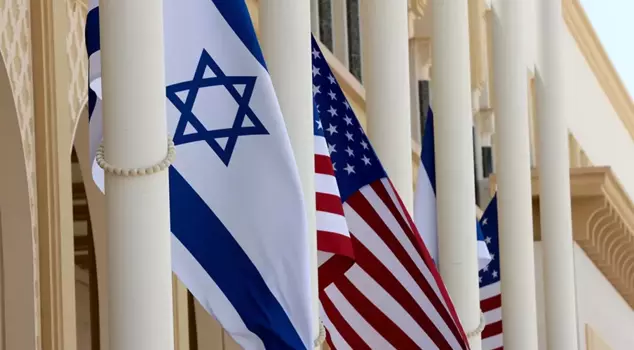
09.05.2025 07:50
The U.S. stance towards Israel suddenly changed after reaching a ceasefire with the Houthis in Yemen and starting nuclear negotiations with Iran. A senior U.S. official stated that the Tel Aviv administration would pay a very heavy price if it did not agree to a ceasefire and a prisoner exchange deal in Gaza.
According to a report by Israel's The Jerusalem Post, a meeting was held between the families of Israeli captives in Gaza and U.S. officials.
A senior U.S. official who attended the meeting harshly criticized Israel's stance in negotiations regarding a ceasefire and the renewal of a prisoner exchange agreement in Gaza, stating that even if Israel is not involved, the U.S. will reach a regional agreement with Saudi Arabia.
The official noted that the captives in Gaza have paid the price for not ending the war so far, saying, "The cost will be very heavy not only for the captives but also for Israel if it does not reach an agreement."
The unnamed U.S. official emphasized that the ceasefire agreement with the Houthis is just a beginning, stating, "If Israel does not come to its senses, the agreement will happen without Israel."
It was reported that the relatives of the Israeli captives present at the meeting interpreted the expressions used by the U.S. official as a "tonal shift from an ally traditionally thought to support Israel unconditionally."
CEASEFIRE BETWEEN THE U.S. AND THE HOUTHIS
Oman's Foreign Minister Badr al-Busaidi announced that a ceasefire has been established between the U.S. and the Houthis, based in Yemen's capital Sana'a, to end attacks in the Red Sea and the Bab al-Mandab Strait.
U.S. President Donald Trump stated, "The Houthis have declared that they no longer wish to fight. We will respect that and stop bombing them. They have surrendered, and they say they will no longer blow up ships."
Israeli officials speaking to state television KAN reported that U.S. President Donald Trump's announcement that they would stop bombing the Houthis had a "shock effect" on the Tel Aviv administration.
Israeli Prime Minister Netanyahu stated that despite the U.S. reaching a ceasefire with the Houthis, they would continue to target Yemen.
NEGOTIATION PROCESS BETWEEN IRAN AND THE U.S.
U.S. President Donald Trump, who unilaterally withdrew from the nuclear agreement with Iran in 2018, sent a letter to Iranian leader Ali Khamenei in March, calling for direct nuclear negotiations with Iran, which also included threats.
Iran responded to the letter through Oman.
Following the letter exchanges, Tehran and Washington held indirect talks first in Oman on April 12, and then in Rome and again in Oman a week apart.
The fourth round of negotiations was announced to take place in Rome on May 3. Oman's Foreign Minister Badr bin Hamed al-Busaidi, who mediated the talks, announced on his X social media account that the negotiations were postponed due to "logistical reasons."